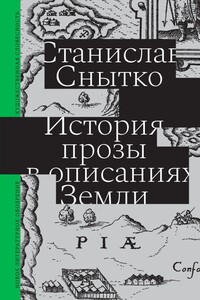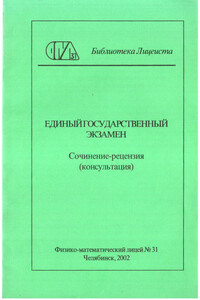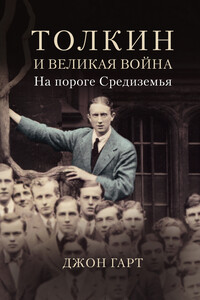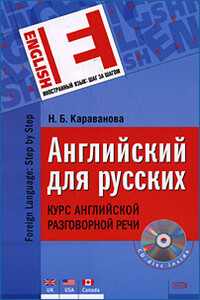Английский язык для юристов. Предпринимательское право - [5]
Contractual characteristics are divided into four different categories:
• valid, void, voidable, and unenforceable;
• unilateral and bilateral;
• express and implied; and
• informal and formal.
Any given contract could be classifiable in all four ways. Thus, a single contract could be said to be valid, bilateral, express, and formal.
A valid contract is one that is legally binding and fully enforceable by the court. In contrast, a void contract is one that has no legal effect whatsoever. A contract to perform an illegal act would be void. A voidable contract is one that may be avoided or canceled by one of the parties. A contract made by minors and one that is induced by fraud or misrepresentation are examples of voidable contracts. An unenforceable contract is one that, because of some rule of law, cannot be upheld by a court of law. An unenforceable contract may have all the elements of a complete contract and still be unenforceable.
A unilateral contract is an agreement in which one party makes a promise to do something in return for an act of some sort. In contrast, a bilateral contract is one in which both parties make promises. A bilateral contract comes into existence the moment the two promises are made. A breach of contract occurs when one of the two parties fails to keep the promise.
A contract can be either express or implied. An express contract requires some sort of written or spoken expression that indicates the desire of the parties to enter the contractual relationship. An implied contract is created by the actions or gestures of the parties involved in the transaction.
In some situations, laws require certain types of contracts to be in writing. A written contract does not have to be a long, formal, preprinted agreement. A written contract may take the form of a letter, sales slip and receipt, notation, or memorandum. A written contract may be typed, printed, scrawled, or written in beautiful penmanship.
One who knowingly accepts benefits from another person may be obligated for their payment, even though no express agreement has been made. Agreements of this type can be either implied in fact or implied in law.
Contracts implied by the direct or indirect acts of the parties are known as implied-in-fact contracts.
An implied-in-law contract can be imposed by a court applying reasons of justice and fairness when someone is unjustly enriched at the innocent expense of another. It is used when a contract cannot be enforced or when there is no actual written, oral, or implied-in-fact agreement. An implied-in-law contract is also called a quasi-contract. It does not result from the mutual assent of the parties such as an express or implied-in-fact contract.
Under common law principles, a formal contract differs from other types in that it has to be written; signed, witnessed, and placed under the seal of the parties; and delivered.
A special type of formal contract – contract of record – is not a contract in the true sense of the word because it is court created, and it does not have all the elements of a valid contract. Often, such a contract is one that has been confirmed by the court with an accompanying recorded judgment giving the successful litigant the right to demand satisfaction of the judgment.
An oral or written contract that is not under a seal or is not a contract of record is considered an informal contract (also known as a simple contract). An informal contract generally has no requirements as to language, form, or construction. It comprises obligations entered into by parties whose promises are expressed in the simplest and, usually, most ordinary nonlegal language.
After a contract has been negotiated, all obligations must then be satisfactorily performed in order for the contract to be executed. A contract that has not yet been fully performed by the parties is called an executory contract. When a contract's terms have been completely and satisfactorily carried out by both parties, the contract becomes an executed contract. Such a contract is no longer an active agreement and is valuable only if a dispute about the agreement occurs.
Exercise 1. Comprehension questions:
1. How are the two contracting parties called?
2. What are the requirements of an offer?
3. Can it be called an acceptance when the offeree changes the terms?
4. What does the mutual assent suppose?
5. In what cases do people have the right to abandon their contracts?
6. What is a consideration and why is it an important element of a contract?
7. What makes the contract illegal?

«Надо уезжать – но куда? Надо оставаться – но где найти место?» Мировые катаклизмы последних лет сформировали у многих из нас чувство реальной и трансцендентальной бездомности и заставили переосмыслить наше отношение к пространству и географии. Книга Станислава Снытко «История прозы в описаниях Земли» – художественное исследование новых временных и пространственных условий, хроника изоляции и одновременно попытка приоткрыть дверь в замкнутое сознание. Пристанищем одиночки, утратившего чувство дома, здесь становятся литература и история: он странствует через кроличьи норы в самой их ткани и примеряет на себя самый разный опыт.

В сборнике представлены теоретические сведения о семантической структуре слова, о структуре текста, о типах речи, подобраны упражнения для анализа текста, также образцы рецензий на фрагменты рассказов из КИМов ЕГЭ.

Книга Дж. Гарта «Толкин и Великая война» вдохновлена давней любовью автора к произведениям Дж. Р. Р. Толкина в сочетании с интересом к Первой мировой войне. Показывая становление Толкина как писателя и мифотворца, Гарт воспроизводит события исторической битвы на Сомме: кровопролитные сражения и жестокую повседневность войны, жертвой которой стало поколение Толкина и его ближайшие друзья – вдохновенные талантливые интеллектуалы, мечтавшие изменить мир. Автор использовал материалы из неизданных личных архивов, а также послужной список Толкина и другие уникальные документы военного времени.

В новой книге известного писателя Елены Первушиной на конкретных примерах показано, как развивался наш язык на протяжении XVIII, XIX и XX веков и какие изменения происходят в нем прямо сейчас. Являются ли эти изменения критическими? Приведут ли они к гибели русского языка? Автор попытается ответить на эти вопросы или по крайней мере дать читателям материал для размышлений, чтобы каждый смог найти собственный ответ.

Предлагаемое издание – учебник нового, современного типа, базирующийся на последних разработках методики обучения языкам, максимально отвечающий потребностям современного общества.Его основная цель – научить свободно и правильно говорить на английском языке, понимать разговорную речь и ее нюансы.Отличительными чертами учебника являются:· коммуникативная методика подачи и закрепления материала;· перевод на английский язык лексики и диалогов учебника носителем языка;· грамматические комментарии, написанные на основе сопоставительного изучения языков и имеющие также коммуникативную направленность.Учебник предназначен для студентов, преподавателей, а также для всех, кто хочет научиться свободно общаться на английском языке.

Доклад С.Логинова был прочитан на заседании Семинара 13 декабря 1999 года, посвященном теме «Институт редакторов в современном литературном процессе»).От автора: статья написана на основе фактов, все приведённые имена и фамилии подлинные. Случайных оскорблений здесь нет.